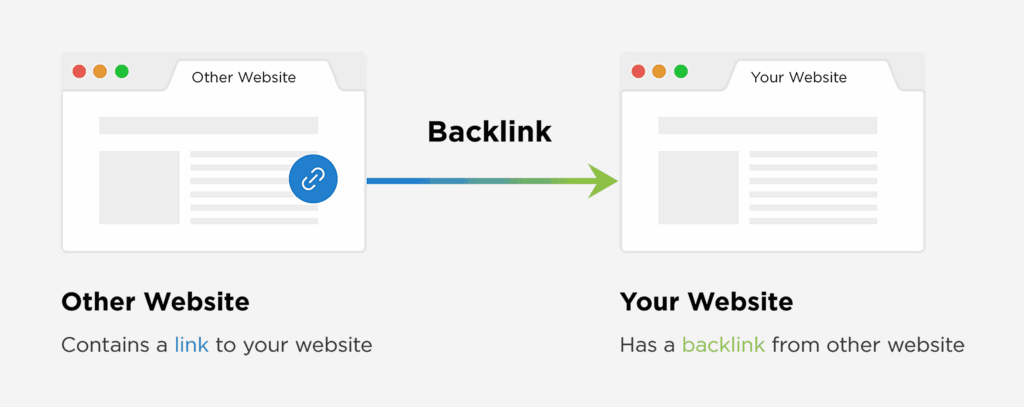What Makes a Good Backlink (And Why It Actually Matters)
Ever stumbled across the term “backlink” and wondered what all the fuss is about? In the SEO world, backlinks are like quiet recommendations passed around behind closed doors. They aren’t flashy, and they don’t usually scream for attention, but they speak volumes to search engines. The right backlink from SEO Ireland can carry more weight than a dozen keyword tweaks or blog posts stuffed with fluff. But not all backlinks are created equal, and chasing the wrong kind can do more harm than good.
So, what makes a backlink good? Not just “okay” or “better than nothing,” but genuinely valuable. Here’s where it gets interesting.
Not All Links Wear Capes
To break it down, a backlink is simply a hyperlink from one website pointing to another. But think of it like this, if a friend recommends a restaurant, it means something. If that friend happens to be a Michelin-star chef? Now that recommendation has teeth. That’s the difference between just a backlink and a good backlink.
Good backlinks come from places that search engines already trust. These are websites with authority, strong reputations, and content that resonates with readers. When they link out, search engines pay attention. It’s the online equivalent of someone well-respected standing up in a crowded room and saying, “Hey, this site knows what it’s talking about.”
Authority Speaks Louder Than Quantity
One of the oldest myths floating around is the idea that more backlinks automatically means better rankings. That’s only half the story, maybe even less than half. Quantity without quality is just noise. A hundred low-quality links won’t make a dent if they’re coming from irrelevant or spammy sources.
Search engines are smarter than they used to be. They’ve learned to look past raw numbers and ask smarter questions: Where is this link coming from? Does this source have a history of reliability? Is the link relevant to the content it’s placed in?
If the answer to those questions is shaky, the link gets downgraded. Worse, too many bad links can trigger penalties or cause rankings to slip. Quality isn’t just a preference, it’s the whole ballgame.

Relevance: The Unsung Hero
Relevance doesn’t always get the credit it deserves. A backlink from a high-authority site in a completely unrelated industry? It might look good on paper but could leave search engines scratching their heads. If a gardening blog links to a site about enterprise software, the context feels off, and the value drops.
On the other hand, a link from a smaller, niche blog in the same field? That could be golden. Context builds trust. When content flows naturally, and the link makes sense within the topic, it sends the right signals, not just to search engines, but to the people reading it.
Placement Isn’t Just Cosmetic
Where a link lives on the page matters more than most realize. Buried in the footer or stuck in a comment section? That link probably won’t carry much weight. But placed in the middle of a thoughtfully written article? Now it starts to matter.
Search engines understand structure. They know the difference between content that’s been intentionally curated versus something thrown in as an afterthought. A link surrounded by meaningful content shows that someone took the time to write with purpose, and that’s what algorithms reward.
Natural Over Manufactured
There’s a noticeable difference between links that appear naturally and those that feel forced. Ever read a blog where a hyperlink feels like it was jammed in just to hit a quota? It’s obvious. And it undermines credibility.
Good backlinks feel organic. They don’t scream for attention, they earn it. They support the topic, enhance the message, and offer the reader something valuable. And when that happens, the link doesn’t just help SEO, it helps trust.

Anchor Text: Subtle but Strategic
Anchor text, the clickable words in a hyperlink, can quietly shape how search engines interpret the link. But this isn’t about stuffing in exact-match keywords every chance available. That tactic’s long expired. Now, it’s about balance.
Branded terms, partial matches, and even natural language all play a role. When done right, anchor text fits the content like a puzzle piece. It doesn’t feel robotic or over-optimized. It simply makes sense, and that authenticity carries weight.
Diversification Keeps It Real
A healthy backlink profile isn’t just strong, it’s diverse. Links coming from a variety of domains, different types of content, and various sources tell a more believable story. It’s like a résumé backed by people from all corners of your career. That kind of endorsement carries credibility.
If all links come from a handful of places, or worse, from obvious link farms, it starts to raise red flags. But when they arrive naturally, over time, from different credible sources? That’s where the magic happens.
The Hidden Power of Editorial Links
Editorial links are the gold standard. These are links given because the content deserves it, not because of outreach, payment, or obligation. They’re the truest form of digital word-of-mouth.
Why do they matter so much? Because they’re hard to fake. When a site links to another simply because it finds the content valuable, that’s the clearest signal of trust. And trust is what search engines are always chasing.
Backlinks Are Long-Term Investments
The effects of a strong backlink may not show up overnight. But over time, the ripple effect becomes hard to ignore. Rankings improve. Traffic flows more freely. The site’s authority grows, bit by bit.
That’s why building backlinks isn’t a task, it’s a strategy. One that rewards patience, consistency, and an eye for authenticity. The shortcuts might tempt, but the long road leads to real results.
So, What’s the Takeaway?
A good backlink doesn’t just exist, it earns its place. It’s relevant, thoughtfully placed, and comes from a trusted source. It blends into the content naturally while quietly signaling value to both readers and search engines.
The best part? These aren’t mythical creatures. They’re out there, waiting to be discovered, or better yet, earned through genuine value and smart strategy.
For anyone serious about SEO, backlinks aren’t just part of the picture. They’re the frame that holds everything together.





